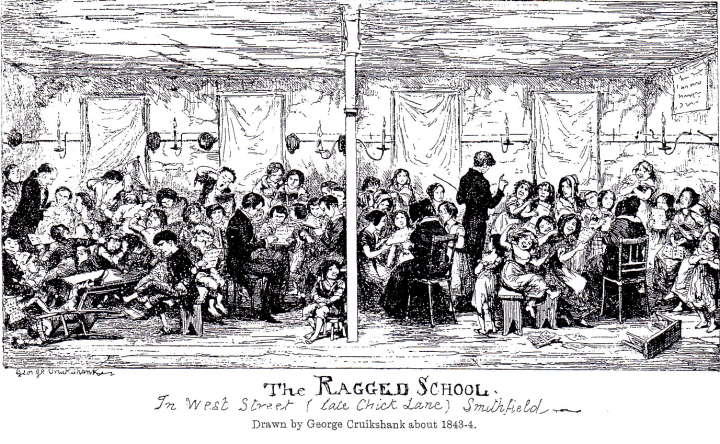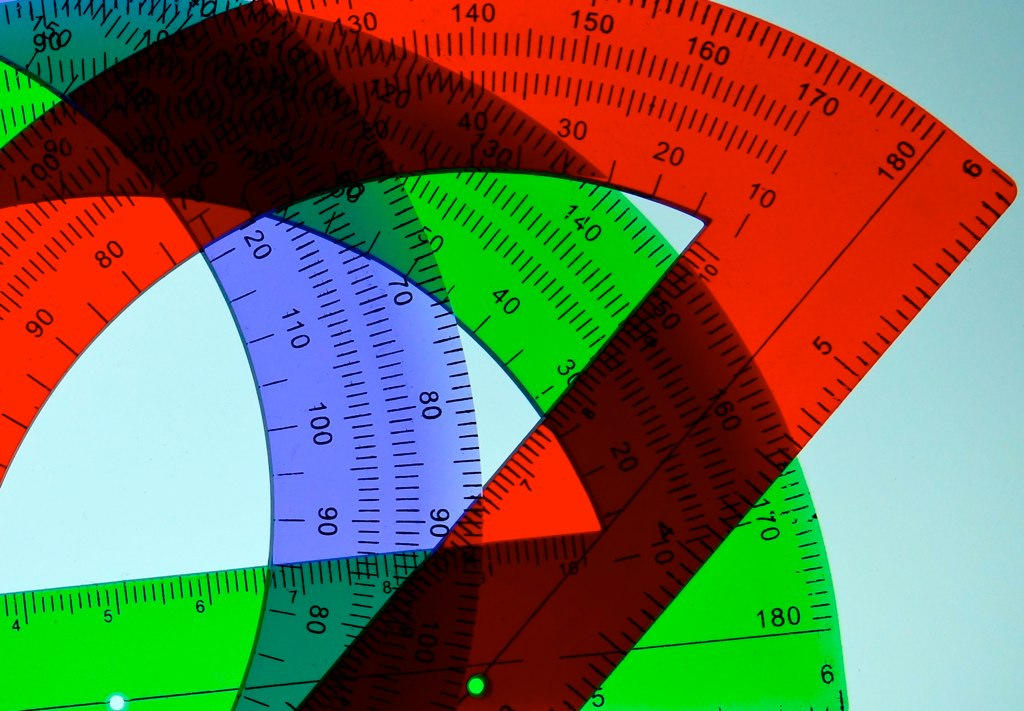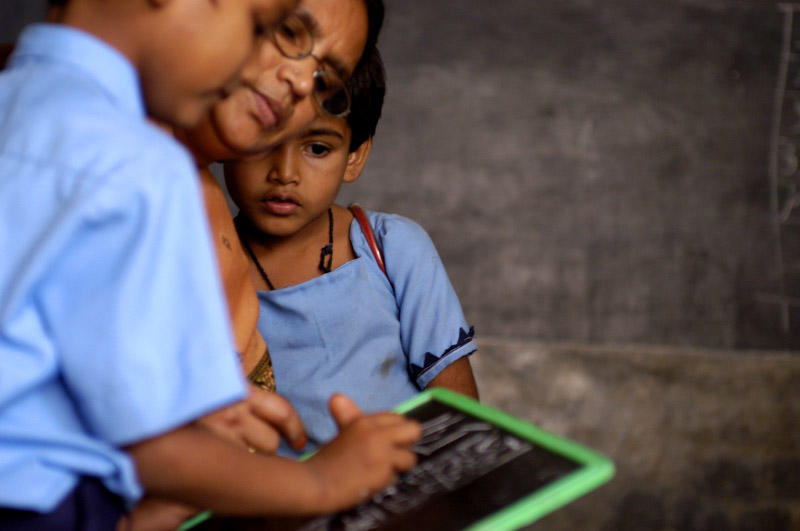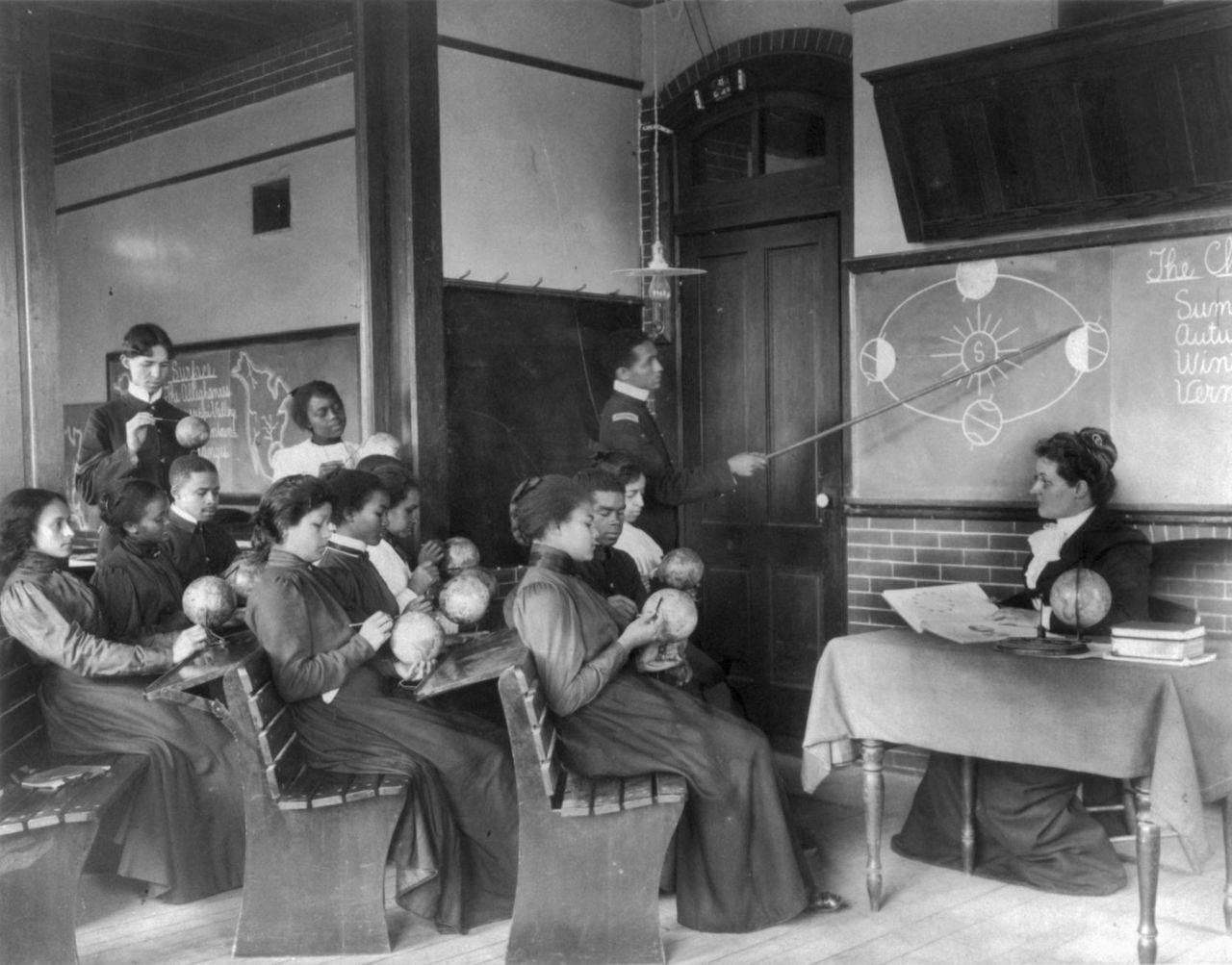Since the origin of maths, maths teaching methods have changed immensely over the past two centuries.
While there will always be room for further improvement, great advances have been made in methods to bring maths into the everyday lives of all pupils.
So how can learning about maths history help us today? Keep reading, this article is for you.
Want to give private lessons?
Join the Superprof community and share your knowledge with inquiring and motivated students.
Should Math Be Taught in Schools?
In the UK, the power of the Church over education and schooling in the UK began to decline at the beginning of the 19th century.
Newly established organisations embarked on a mission to eliminate illiteracy in towns and cities which largely attributed to the significant migration of rural workers who sought employment opportunities during the industrial revolution.
The British state took direct involvement in education on a national scale in 1833. During this period, funds were allocated for the construction of schools specifically for underprivileged children. The Elementary Education Act of 1880 marked the beginning of compulsory education for all children aged 5 to 10 years.
Similarly, in South Africa, albeit much later, the question about whether should math taught in schools was loaded with political friction of another kind.
In the 1960s, significant advancements were observed in maths teaching methods in South Africa. Steps were taken to enhance educational opportunities for all, the question should math be taught in schools was answered with a resounding yes irrespective of race or ethnicity. The Bantu Education Act of 1953 was introduced to provide basic education to black South African students, which included maths teaching strategies. Regrettably, the curriculum and resources provided to these students often fell short compared to what was available to white students. Nevertheless, there were pockets of progress as certain schools and educators worked diligently to gain equality for all who needed to learn maths.

Today, maths teaching methods in South Africa has made significant strides. In addition to striving for equality, teachers now recognise the importance of developing number fluency from an early stage, starting in primary school. Fortunately, the question should math be taught in schools is virtually redundant!
Over the years, many more myths and clichés regarding maths have been added to the question should math be taught in schools.
Maths Teaching Strategies Since the 60s
Before the advent of calculators, the majority of calculations were performed manually using tools like slide rules and log tables. However, on Decimal Day, which occurred on 15 February 1971, the Imperial system of weights and measures was replaced, eliminating the need for the extensive calculations it required. This transition also resulted in a decrease in the amount of time dedicated to numerical calculations within educational settings.

When affordable and portable electronic calculators emerged in the 1980s, the initial concern was that the mental arithmetic skills of students in general, would decline. However, over time, these calculators became an essential tool for every student. The introduction of scientific calculators further expanded the possibilities, enabling students to perform more complex functions in logarithms and trigonometry.
The Role of Psychology in Maths Teaching Strategies
There is no doubt that the field of psychology has been instrumental in shaping and enhancing mathematics teaching methods on a global scale. In 2007, a panel of scientific experts in the United States published a report that synthesised extensive research from developmental psychology, cognitive science, educational research, and assessment. This report examined the interplay between psychology and education, shedding light on the connection between the two disciplines.
Furthermore, the report emphasised how the advancements in understanding fundamental mathematics and science concepts, along with research on social issues and motivation, provide valuable insights for exploring new approaches to improve classroom practices. By integrating psychological knowledge, educators can enhance teaching methods and create more effective learning environments for students.

There are four main areas where psychology is considered to have made a significant impact on maths teaching methods.
Want to give private lessons?
Join the Superprof community and share your knowledge with inquiring and motivated students.
How to Learn Maths for Early Conceptual Understanding
Research has shown that the type of maths input that children are exposed to during preschool plays a key role in determining early individual differences in maths competence, later demonstrated at school.
Tragically in South Africa and around the globe, children from families of lower socioeconomic status are less exposed to maths in their early years and this can contribute to the achievement gap seen in schools.
Learn Maths to Understand Science Concepts
The language used in the realm of science can be deceptively similar to everyday language, however, the fact is that many common words have entirely different meanings in mathematics and science. This can create a potential challenge for students. This linguistic disparity can lead to confusion and other difficulties in comprehension.
Linguistic psychology offers insights into how prior knowledge influences understanding. It is also able to identify where confusion may arise.
Learn Maths for Social and Motivational Involvement
Extensive research over the years has revealed the influence of various social and motivational factors on academic achievement, along with their subsequent impact on aspirations. Gender and race identity stereotypes, in particular, have been found to play a significant role in these dynamics.
For instance, despite advancements, it remains a reality that the majority of students pursuing mathematics degrees at universities are still male. This disparity highlights the persistence of gender-related stereotypes and their influence on educational and career choices.
Through long-term research, these patterns have become evident, indicating the need to address and overcome the societal biases and perceptions that can limit opportunities for certain groups. Through challenging and recognising these stereotypes there is a fostering of equality and diversity in academic fields.

According to a 2014 article in The Guardian, the issue with mathematics education stems from the disparity between the way math is taught in educational settings and its application in the real world. The article suggests that while computers are widely used for calculations in real-life scenarios, education continues to focus on manual calculation methods performed by individuals.
In today's technologically driven society, where math is integral to fields such as IT, telecommunications, artificial intelligence, and automation, traditional math education places excessive emphasis on skills that have already been mechanised and delegated to computers. This can mean that students are often presented with sub maths teaching methods and indeed, math problems which fail to expose them to the real-world maths that is now handled using computer-based calculations.
This approach inadvertently gives students the impression that math is irrelevant when in reality, the opposite is true. As a result, there exists a growing gap between the maths teaching methods in schools and what is required in the real world.
There is a maths tutoring mindset that proposes a shift from rote learning of mental math calculations and suggests engaging students with real-world examples that engage with the power of computing and calculus. This thinking encourages students to tackle challenges such as examining statistics, cracking cyphers, or redesigning public transport systems, for instance in a way that demonstrates creativity and lateral thinking. It proposes the conceptual understanding required by maths to solve complex problems with the mechanisms available to us in the real world today.
Interestingly, Estonia is the pioneer in advocating coding education in schools as well as implementing computer-based learning systems for mathematics.
Consider enrolling in maths lessons online to strengthen your mathematical skills and enhance your understanding of key concepts from the comfort of your home.
Maths Teaching Strategies of the Future
In an ideal scenario, mathematics instruction should become more intertwined with real-life contexts while it takes the diverse backgrounds of all students into account too. To do this, several challenges need to be addressed to ensure quality mathematics education for all:

- Enhancing accessibility of demonstrations, particularly in subjects like geometry, so that the majority of students can engage effectively.
- Making exercises relevant to real-life situations, combating the perception that mathematics is disconnected from everyday life and showcasing its practical applicability.
- Allowing for differentiation within the same classroom, accommodating both struggling students and those who grasp mathematics easily, while maintaining a common core of mathematical knowledge.
- Empower teachers to customise exercises.
- Emphasising the relevance of mathematics to future careers, particularly in higher education and beyond.
The teaching of mathematics is an evolving process, constantly changing. Many educators view this evolution as a positive trend, influenced by scientific and artistic subjects, and the establishment of a shared core curriculum.
Do you believe that maths and art are linked?
Looking ahead, a key objective for mathematics instruction in the coming years should be reducing the number of students who struggle or fail due to the pressure of overly demanding teaching methods. The 21st century is likely to bring further changes in the way mathematics is taught as educators adapt to new pedagogical approaches and advancements in technology.
Next, find out more about the genius Albert Einstein and what he did to evolve maths.
Looking for a maths tutor? Let's tackle those tough equations together! Discover skilled tutors in your area who can simplify math concepts and help you excel. Whether it's exam prep, grade improvement, or just a confidence boost, our experienced tutors are here for you. Don't let math hold you back - start mastering it today!
Want to give private lessons?
Join the Superprof community and share your knowledge with inquiring and motivated students.
Summarise with AI:





